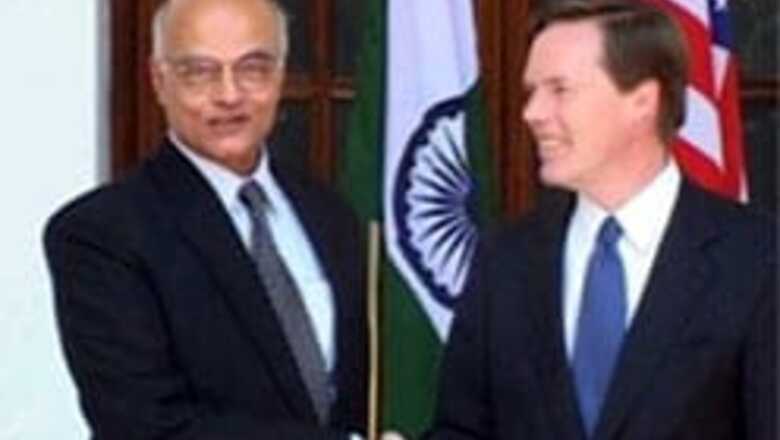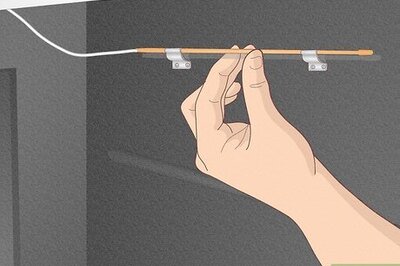
views
New Delhi: The US later on Friday said it could seek the return of atomic technology and fuel if India conducts a nuclear test.
Hours after New Delhi said there was nothing binding in last week's 123 Agreement reached in Washington on the issue, US Under Secretary of State Nicholas Burns said, “On the issue of the so-called right of return, of course, the American President under the Atomic Energy Act has the right to ask for the return of nuclear fuel and nuclear technology if there is a nuclear test by India."
"The right of return is preserved. Both sides build in protections and if there is any reason for the US to invoke the right of return, we can do so," he said.
“We had to make sure that everything under the civilian nuclear agreement and the agreement was completely consistent with the Hyde Act and well within the bounds of the Hyde Act," Burns said.
Under the law, the US would have to cut fuel supply in the event of another Indian nuclear test; the final agreement does not spell out what would happen in such an eventuality.
The deal, however, allows India to develop 'a strategic reserve of nuclear fuel' in case of a disruption of fuel supply
Stating that India was a 'unique' case, Burns also ruled out a similar civilian nuclear deal with any other country, including ally Pakistan, and stressed that the 'very high bar' of the Nuclear Suppliers Group on proliferation issue would prevent other nations from getting the same 'treatment' as New Delhi.
"This is complicated enough, I can assure you, that the United States is not going to suggest a similar deal with any other country in the world. We've always felt of India as an exception," Under Secretary of State for Political Affairs Nicholas Burns said during a briefing on the Indian civilian nuclear initiative.
"We've made the argument that India has not proliferated its nuclear technology; that India, in effect, outside the system, has played by the rules and that the system would be strengthened by bringing it in. But we're not anticipating, in any way, shape or form, a similar deal for any other country," he added.
Burns said once India completes a safeguards agreement with IAEA chief Mohamed ElBaradei, "then the action — September, October, I hope, November — will turn to the NSG."
"And I think it's important for the NSG countries to be assured that we're all going to be make, on an international basis, an exception for India, but we're not going to have — it won't be a precedent to bring other countries in under the same basis, because India is unique in its history of its civil nuclear programme, and we think that we're going to strengthen the NSG by having the international community take the same decisions that the US has taken in leading this initiative," he said.
President Bush welcomed the successful conclusion of the nuclear agreement as another step in deepening the strategic partnership with India. In a statement, he promised to work with the US Congress to fully realise the initiative.
The deal signed last week requires India to separate its civilian nuclear power reactors and open them to international inspections.
The final agreement will allow India to carry out the reprocessing, but requires it to develop a new facility dedicated to that purpose and subject to International Atomic Energy Agency safeguards.
(With agency inputs)




















Comments
0 comment